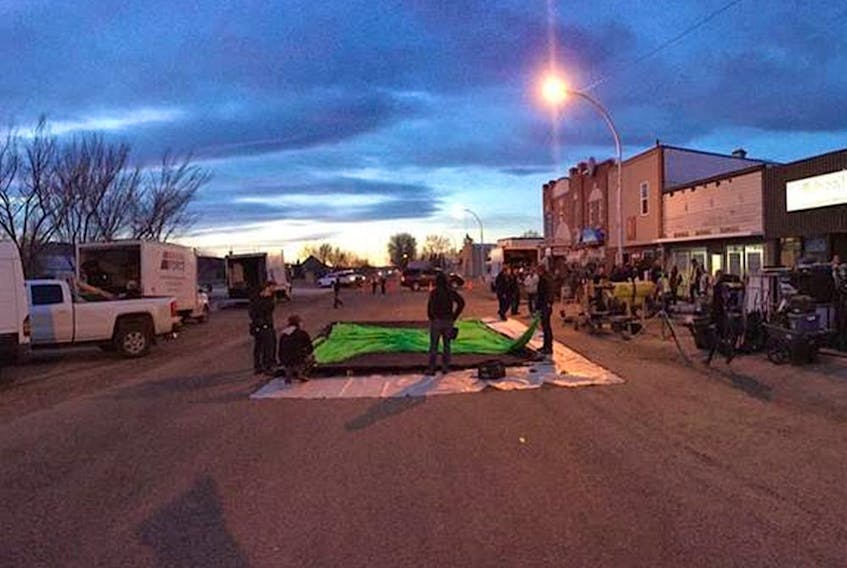Moviemaker magazine has ranked Calgary the 10th best place to live and work for moviemakers in its annual Top 25 list, touting the city’s “sound stages galore, great crews and production services that are ready when you are.”
It’s the first time Calgary made the list in Moviemaker, a leading industry publication that comes out quarterly and offers “profiles, advice, insider tips and product reviews.” According to a news release from Calgary Economic Development, its rankings are based on surveys, recent productions, personal visits to locations, a study of the city’s business environment and its quality of life.
The list puts Calgary ahead of Toronto and just behind Vancouver and Montreal among Canadian cities. It also ranks higher than Seattle, Kansas City, Washington, D.C., Portland, Baltimore, San Diego and Dallas, among others. New York City and Los Angeles were not included in the Top 25, earning the top two “hall of fame” spots on the list.
Some of the productions cited in the profile of Calgary are a bit out of date. FX’s Fargo, for instance, moved production to Chicago for its fourth season and hasn’t filmed in the city since early 2017. Ghostbusters: Afterlife wrapped in the fall of 2019. Still, the recognition seems to confirm that the international film and television industry is taking notice of Calgary as a filmmaking city
For Luke Azevedo, commissioner of film, television and creative industries for Calgary Economic Development, it is recognition of a potential that has been here for a long time.
“In my opinion, and I think the opinion of most people who work in this industry in the province, none of this is new,” Azevedo said. “These things don’t happen as acts of God. This is thousands of people working consistently to get the reputation that we have and to give us the opportunity to be considered, at a global level, one of the locations of choice that people are going to look to to get their projects done.”
Already this year, three major television series have been greenlit for Calgary. A reboot of Fraggle Rock began filming at the Calgary Film Centre this week. Guilty Party, a CBS series starring actress Kate Beckinsale, and Paramount Television’s Joe Pickett, an action series based on the novels by C.J. Box, have also been confirmed to begin production this year in Calgary.
Azevedo says there are indications that this is just the tip of the iceberg.
“This is one of the busiest starts to a production season that we’ve ever seen in this province,” Azevedo says. “With the amount of attention that’s being paid to us, the amount of digital photo packages that are being produced — because that’s how scouting is mostly running at this point — and the amount of projects that have interest in being here this season, this could absolutely be our biggest year.”
Damian Petti, president of the film workers union IATSE 212, says the $200-million the industry spent in Alberta in 2020 could easily double in 2021.
“I think the international community is rethinking Alberta and maybe giving us a second look,” he said. “There is definitely a vibe.”
Discussions are still underway with the provincial government to address long-standing issues about the incentives used to lure productions here. As recently as last February, labour leaders and workers from the Alberta film and television industry went public pushing for changes to Alberta’s tax-credit system to better compete for billions of dollars worth of screen productions. At issue has been the annual and per-project caps set on tax credits, something jurisdictions such as Ontario, B.C., Manitoba and others in the U.S. do not have.
Copyright Postmedia Network Inc., 2021









